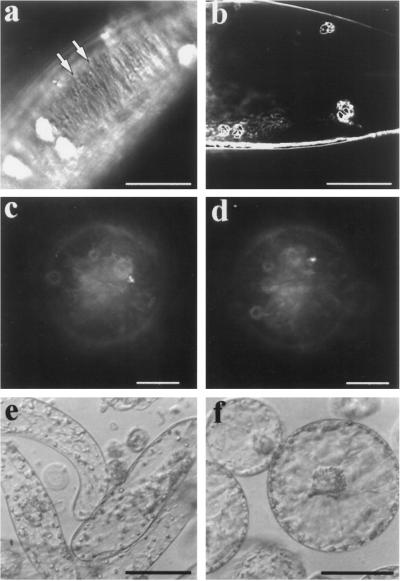Figure 2.
Isoxaben-treated protoplasts exhibit neither birefringent cell walls nor cellular elongation. Ordered cellulose microfibrils have optical properties that render them birefringent by polarized light microscopy. Cultured tobacco BY-2 protoplasts have highly organized cellulose microfibrils, as evidenced by their birefringent properties (a). When birefringent cells are turned at a 45° angle, they lose their birefringent character (b). Birefingence is not observed at either angle when protoplasts are cultured for 7 d in the presence of 2.5 μm isoxaben (c and d, smaller apparent size is due to the focal plane being at the top of the spherical protoplast). Ordered cellulose microfibrils permit cell elongation (e), and the lack of ordered microfibrils in isoxaben-treated protoplasts results in the inability of cells to elongate (f). The cells shown in e and f were both cultured for 7 d. Bars = 20 μm (a and b), 6 μm (c and d), and 40 μm (e and f).

